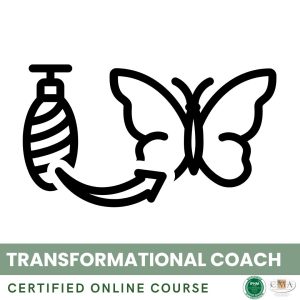Ethics and deontology are the foundations of any helping relationship, and even more so when it comes to spiritual guidance. The Spiritual Healing Coach, by virtue of the intimate and profound nature of their work, must embody a high level of integrity and respect for the people they accompany.
One of the fundamental ethical principles is confidentiality. Anything said and experienced in the coaching space is strictly confidential. The coach commits to not disclosing any information about their clients, whether it is their identity, their story, or the content of the sessions. This confidentiality is the basis of the trust relationship that allows the individual to open up safely.
Non-judgement and unconditional acceptance are also pillars of the ethics of the Spiritual Healing Coach. Regardless of the individual’s experiences, beliefs, life choices, the coach must welcome them with equal kindness. They do not pass moral judgment, nor seek to impose their own values. Their role is to offer a loving presence and unconditional support to allow the other person to progress on their own path.
This does not mean that the coach condones all behaviors. If they witness illegal or unethical acts during the assistance (violence, abuse, etc.), they have a duty to intervene and alert the appropriate authorities if necessary. The safety and well-being of the person remain the absolute priority.
Another important deontological principle is recognizing one’s own limits as a coach. The Spiritual Healing Coach is not a medical therapist or a clinical psychologist (unless they have these qualifications besides). They do not diagnose, nor prescribe treatment. If the individual presents disorders that surpass their field of skill, they must guide them towards the suitable professionals. Working in a network and knowing when to pass the relay is an integral part of the deontology.
Similarly, the coach must be careful not to create emotional or spiritual dependence. The coaching relationship, however powerful and intimate it may be, is not a friendship or a love relationship. The coach cannot fill the emotional needs of the individual, substitute for their loved ones. They must ensure to maintain a clear framework and healthy boundaries in the relationship. Their goal is to make the individual self-reliant and free, not to bind them to him.
Spiritually, the coach must respect everyone’s beliefs. Whether they are themselves affiliated with a particular tradition or not, they do not seek to convert or impose a world view. Their role is to help the individual clarify and deepen their own quest for meaning, whatever it may be. They can share teachings and tools from different wisdoms, but always respecting the individuals’ free will.
Take the example of Marc, a Spiritual Healing Coach who has been supporting Sophie for several months. Over the sessions, Sophie opens up more and more and confides painful events of her past to Marc, which she has never spoken to anyone about. Marc receives these confidences with great delicacy and assures Sophie that nothing will leave the coaching space. When Sophie’s friend asks him about her progress, Marc remains vague and preserves the confidentiality of what has been entrusted to him.
Over the sessions, Marc realizes that Sophie is showing signs of severe depression. Although he can help her work on her emotional and spiritual patterns, he feels that psychotherapeutic support would be beneficial in addition. With Sophie’s agreement, he recommends her a qualified therapist and encourages her to start therapy alongside coaching. Marc knows how to recognize the limits of his support and acts in Sophie’s interest.
Spiritually, even though Marc has an affinity for Buddhism, he does not guide Sophie down this path. He invites her to explore her own spirituality, to find practices and teachings that resonate with her. When Sophie becomes interested in meditation, Marc imparts some basic techniques but mainly encourages her to experiment on her own and find her own style.
In the end, ethics and deontology are the safeguards that allow the Spiritual Healing Coach to practice their art with integrity and responsibility. More than just a code of conduct, it’s a true inner compass that guides each of their actions and words in the service of the greater good of the individual being guided. By embodying these values of honesty, respect, and unconditional kindness, the coach creates a sacred space where deep transformation can occur safely.
Key points to remember:
– Ethics and deontology are essential in spiritual support, based on integrity and respect.
– Confidentiality is a foundational principle. The coach commits to not disclose any information about their clients.
– Non-judgment and unconditional acceptance are the pillars of the coach’s ethics, who welcomes the individual with kindness, without imposing their values.
– The coach has a duty to intervene if they witness illegal or unethical acts during the support.
– The coach must recognize the limits of their skills and guide the individual towards suitable professionals if necessary.
– The coach must ensure to not create emotional or spiritual dependence and maintain a clear framework in the relationship.
– The coach respects everyone’s beliefs and does not impose their own spiritual vision. Their role is to help the individual deepen their own quest for meaning.
– Ethics and deontology guide the coach’s actions in the service of the greater good of the individual being supported, creating a sacred space conducive to transformation.
👉 To download docx (Editable) file click here : Click here
👉 To download PDF file click here : Click here
👉 To download MP3 file click here : Click here







